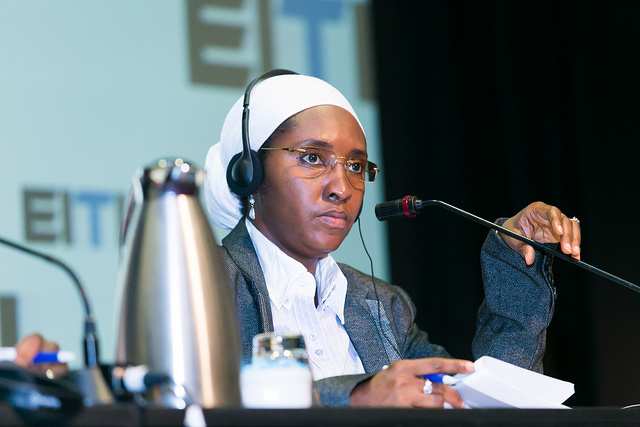- Probe Skye Bank Directors, Minister Orders CBN, NDIC
The Minister of Finance, Zainab Ahmed, has directed the Central Bank of Nigeria and the Nigeria Deposit Insurance Corporation to fully investigate and prosecute all the directors and executive management members, who contributed to the collapse of the defunct Skye Bank Plc as well as other Deposit Money Banks in liquidation.
The minister gave the directive during her familiarisation visit to the NDIC in Abuja on Friday, according to a statement by the Head, Communication and Public Affairs of the corporation, Mohammed Ibrahim.
The Managing Director and Chief Executive, NDIC, Umaru Ibrahim, and the Executive Director, Corporate Services, Omolola Abiola-Edewor, led the executive management of the corporation to receive the minister.
Ahmed expressed serious concern about the spate of non-performing loans in the banking industry, adding that while the bailout of distressed financial institutions was necessary in the interest of the stability of the banking system, emphasis should be placed on the investigation and prosecution of delinquent board directors and executive management of financial intuitions who abused the trust reposed in them by depositors.
The minister urged the CBN and the NDIC to use the recent failure of the defunct Skye Bank Plc as an opportunity to deal decisively with any of its directors and management staff found culpable in the course of investigations, so as to serve as a deterrent to other operators in the financial system, as the Federal Government was no longer prepared to treat such serious infractions with levity.
Earlier in his welcome address, the NDIC MD assured the minister that the corporation would do all it could to assist in the recovery of all the debts owed the defunct Skye Bank and other banks in liquidation.
He also expressed the corporation’s determination to ensure that the directors who perpetrated insider abuse and other illegalities in running the affairs of the bank were investigated and prosecuted by the appropriate authorities.
The primary concern of the NDIC, according to him, is to ensure the safety of depositors’ funds and minimise the disruption of banking services.
Ibrahim informed the minister that since 1991, the aggregate payment to depositors, creditors and shareholders of 46 closed banks amounted to N11.75bn, out of which the total payment to insured depositors of Deposit Money Banks amounted to N8.252bn.
He also stated that a total of N2.89bn was paid out to insured depositors of microfinance banks, covering 81,657 individual accounts, while N69.60m was also paid to insured depositors of Primary Mortgage Banks.
A total of 46 DMBs, according to him, are currently in liquidation.
The MD/CE assured the minister that the corporation used the most appropriate failure resolution option in the case of the defunct Skye Bank as it ensured that over 6,000 jobs were saved, while its depositors continued to operate their accounts with the new Polaris Bank Limited, which assumed the entire assets and liabilities of Skye Bank.
Responding, Ahmed commended the NDIC for the thoroughness of its bank examination reports, which she noted had become acknowledged in the banking system.
She also expressed appreciation to the corporation for the prompt payment of its contribution under the Fiscal Responsibility Act, adding that the Federal Government regarded the NDIC as a critical player towards the actualisation of its Economic Recovery Growth.

 Forex3 weeks ago
Forex3 weeks ago
 Naira3 weeks ago
Naira3 weeks ago
 Billionaire Watch2 weeks ago
Billionaire Watch2 weeks ago


 Naira3 weeks ago
Naira3 weeks ago




 Naira2 weeks ago
Naira2 weeks ago




 Naira1 week ago
Naira1 week ago




 Naira4 weeks ago
Naira4 weeks ago
 Banking Sector4 weeks ago
Banking Sector4 weeks ago
























